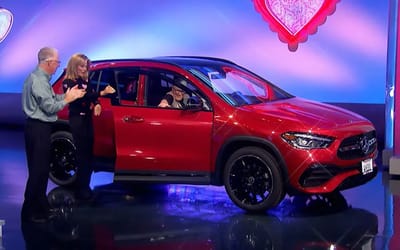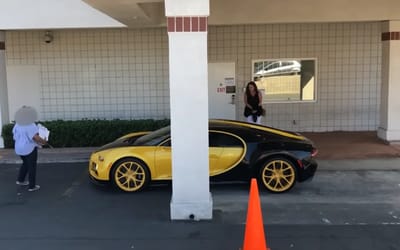Expert disproves one of the most common EV myths while inspecting Tesla with more than 200k miles
- A Tesla Model 3 with over 200,000 miles performed really well
- It was comparable to an almost-new Model 3
- There was no major drop in performance or efficiency
Published on May 25, 2025 at 8:32 PM (UTC+4)
by Jason Fan
Last updated on May 22, 2025 at 1:33 PM (UTC+4)
Edited by
Tom Wood
A Tesla Model 3 with over 200,000 miles just disproved one of the most common EV myths.
A YouTuber took this particular Tesla for a spin, then compared it with the same model, one that is almost brand new.
Both Model 3s were three years old, but one had just 3,000 miles on it, while the other had been through some serious use.
So, what was his verdict?
VISIT SBX CARS – View live supercar auctions powered by Supercar Blondie
YouTube channel RSymons ‘RSEV‘ recently uploaded a video comparing the two vehicles.

After careful inspection, the channel’s host, Richard Symons, came to a surprising conclusion: both batteries were in great shape.
The low-mileage Tesla showed a 99.5 percent battery capacity.
In other words, basically perfect.
On the other hand, the high-mileage one still had 88.5 percent capacity, which is pretty solid considering the car was driven more than 65,000 miles a year.
“They feel very much the same,” Symons said.
“Same efficiency, same performance.”
Symons is not the first to conduct such a test.
After all, a man recently ran a battery test on his five-year-old Tesla Model 3, and got unexpected results.
Tesla batteries typically come with an eight-year warranty that covers a mileage range of between 100,000 and 150,000 miles.
If the battery drops below 70 percent during this time, it gets replaced for free.
This Model 3, however, has been driven well above that threshold, yet its battery capacity remains well above 70 per cent.
According to the YouTuber, this test proves one of the most common EV myths is wrong.
Many think EV batteries wear out fast, but it may not always be the case.
In fact, while there’s some cosmetic wear and tear on the older car, it has done very well in terms of longevity.

In fact, the US Environmental Protection Agency (EPA) addressed several EV myths as well.
In particular, the agency stated that EV batteries are designed to last the lifetime of the vehicle.
Recent data also shows that EV batteries actually have very low failure rates.
The EPA noted that vehicle and battery technologies have improved drastically since 2010, when modern EVs first entered the market.
In fact, since model year 2016, EVs in the US have had less than 0.5 percent failure rate, and the majority of these batteries were covered under warranty.
It seems like newer EVs are definitely more durable, since older Teslas seem to more problems in general.
So there you go. If you thought that EVs are unreliable and need to be replaced every few years, this 200,000- Tesla Model 3 may prove you wrong.
In fact, with ground-breaking innovations in EV technology, electric cars may be more feasible than ever.
If you want to see the full comparison, you can check it out here:
DISCOVER SBX CARS: The global premium car auction platform powered by Supercar Blondie
Jason joined the editorial team at Supercar Blondie in April 2025 as a Content Writer. As part of the growing editorial team working in Australia, and in synergy with team members in Dubai, the UK, and elsewhere in the world, he helps keep the site running 24/7, injecting his renowned accuracy and energy into every shift.




